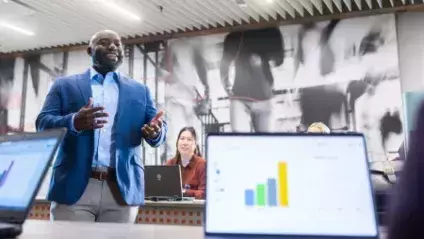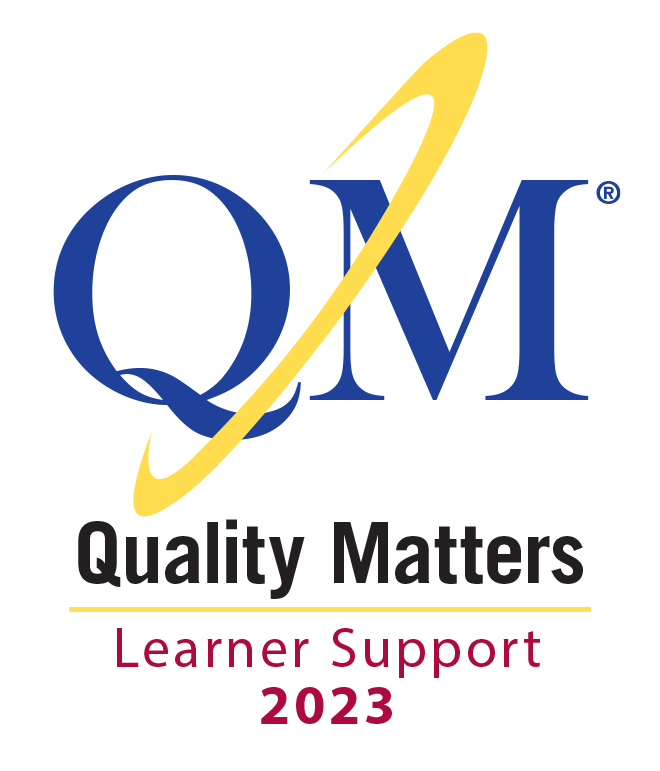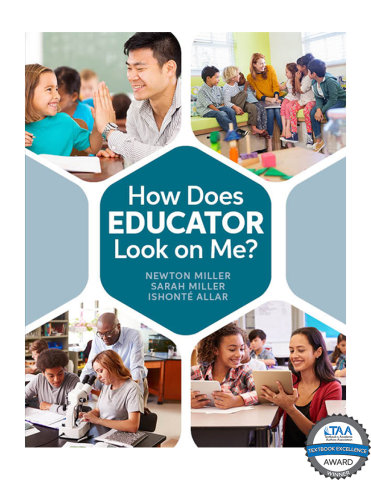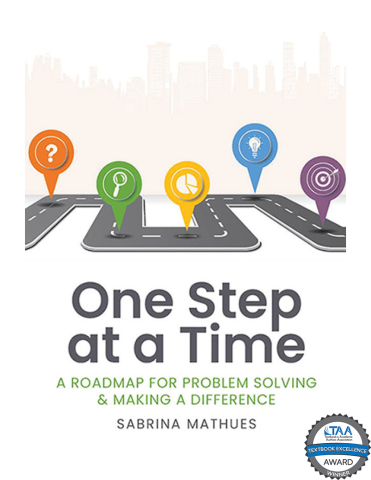Questions? Request Information
Design the Future of Learning
Prepare to design training and instruction for online, place-based, and blended learning environments with the online Bachelor of Arts in Instructional Design degree program from the University of Arizona Global Campus (UAGC).
Instructional design is the process of determining the needs of a learner, identifying the material they need to acquire, and then designing a learning plan that caters to their needs through various instructional solutions. These solutions can come in the form of digital or physical products and experiences. As an instructional designer, you’ll build, develop, and deliver instructional products and experiences for classrooms and even corporations.
Based on the Instructional Designer Competencies of the International Board of Standards for Training and Performance Instruction (IBSTPI), the bachelor’s degree in instructional design ensures you are prepared to serve in the global education economy where instructional designers are in demand.
Upon completion of the instructional design program, you will be able to:
- Design instructional and training interventions and assessments for online, place-based, and blended delivery
- Apply the results of learning, task, performance, and other analyses to the design of training and instruction
- Apply evaluations of technologies for developing, delivering, and assessing instructional design and training interventions
- Distinguish how different principles and theories of learning, design, and assessment influence design processes and outcomes
- Develop plans to manage collaborative processes and participants typically involved in an instructional design project
- Respond appropriately to ethical, legal, and political factors influencing instructional design projects for diverse learners and contexts
- Justify design decisions through effective communication in visual, oral, and written form
UAGC Award-Winning Curriculum
Military Students $250.00/credit
Undergraduate Courses $460.00/credit
Technology Fee** $115.00/course
Books and Other Class Materials** $125.00/average per course
Graduation Fee $150.00
Total Program Cost See UAGC Catalog¹
¹Keep in mind that this figure doesn’t factor in any potential discounts, partner benefits, or impact of accepted transfer credits, if eligible.

UAGC offers enrolled students access to ScholarshipUniverse, a platform that tailors external scholarship opportunities to your unique situation, making it easier to find and apply for scholarships.
UAGC is proud to provide reduced tuition rates for our academic and corporate partners, helping community college transfer students and corporate employees earn their degrees at a lower cost.


Instructional Design Degree Online Curriculum Overview
Your instructional design courses will examine learning theory, studies in assessment, adult learning, and virtual collaboration.
To earn your Bachelor of Arts in Instructional Design at the University of Arizona Global Campus, you must complete 120 credits. You will need to complete 30 upper-division credits, of which 18 credits must be from the major program. A total of 30 credits must be completed at the University of Arizona Global Campus to meet the residency requirement. You may be able to transfer approved credits from community colleges, other previous college coursework, or other life experiences such as military service or job training toward your degree.
This program is not designed to meet the state educational requirements for teacher licensure or certification in any state. Students seeking teacher licensure shall carefully research their state's requirements prior to enrollment and regularly review the requirements as they are subject to change. Requirements vary by state. Graduates will be subject to additional requirements on a state-by-state basis that will include one or more of the following: student teaching or practicum experience, additional coursework, additional testing, or, if the state requires a specific type of degree, earning an additional degree. None of the University of Arizona Global Campus online education programs are accredited by the Council for the Accreditation of Educator Preparation (CAEP), which is a requirement for certification in some states. Other factors, such as a student’s criminal history, may prevent an applicant from obtaining licensure, certification, or employment in their field of study.
Alabama Students: Authorization to provide an education program does not indicate eligibility for an Alabama professional educator or professional leadership certificate. Applicants who complete an education or educator preparation program at a non-Alabama institution must apply for an Alabama professional educator or professional leadership certificate through the Alabama Certificate Reciprocity Approach. Current requirements may be found at https://www.alabamaachieves.org/teacher-center/.
Certain degree programs may not be available in all states.
The Online Teaching Support Certification recognizes programs that require all online faculty to undergo training in best practices for online course delivery, provide faculty with ongoing pedagogical support, encourage faculty professional development to increase their knowledge and skill in online teaching, emphasize instructor availability and feedback to learners, and collect and use feedback from learners to improve online teaching. Learn More

The Online Learner Support Certification recognizes programs that provide all the critical student and academic services needed for learner success and use learner feedback to continuously improve those services.

What Can I Do with a Degree in Instructional Design?
Just a few of the many professional careers that often begin with a bachelor’s degree in instructional design include:
- Training and Development Specialists
- Corporate Trainer
- E-Learning Developer
- Management Development Specialist
- Job Training Specialist
- Training Specialist
- Audio-Visual and Multimedia Collections Specialist
Schools and corporations recognize the need to provide learners with more choices in their learning environments. Professionals in all industries are concerned with teaching and training employees and customers. An instructional designer could work in higher education, corporate, government, military, and non-profit sectors.
Gain insights into the instructional design job market by reviewing the Bureau of Labor Statistics market outlook report.
This degree was perfect for me. The advisors were so very helpful, and the classes were very informative. I definitely got my money's worth.
BA in Instructional Design FAQs
-
A Bachelor of Arts in Instructional Design prepares you to create effective learning experiences and materials. The online program at UAGC teaches how to apply learning theories and design principles to develop engaging and impactful instruction across various formats and platforms for diverse learners.
-
Whether you have prior experience as an educator or trainer, or you are completely new to the profession, pursuing your bachelor’s degree can be a rewarding endeavor while being an important steppingstone as you prepare your move into instructional design. If becoming an instructional designer is your goal, it’s important to take into consideration that employers may require a master’s degree in instructional design and technology.
Companies looking to hire instructional designers to focus on things like employee training, or technology tutorials, often place more value on relevant work experience. At the end of the day, it’s important to determine the kind of work you want to do, as this can determine how far you take your education.
-
Teachers typically deliver pre-designed curriculum in a classroom setting, while instructional designers create and develop those learning experiences and materials, often for diverse settings and audiences. Instructional designers focus on the "behind-the-scenes" work of designing effective instruction.
-
If you enjoy problem-solving, have a passion for education and technology, and are fascinated by how people learn, instructional design might be a good fit for you. Speak with a UAGC Enrollment Advisor about your career goals to find out if our bachelor’s degree in instructional design is right for you.
-
The ever-changing role of the instructional designer is reflected in the degree curriculum. This online degree explores learning theory, curriculum development, and the development and implementation of training processes. The relevant and current subject material that is covered in this degree in instructional design focuses on the emerging issues in educational technology and making instructional experiences through e-learning more efficient.
See What Else UAGC Has to Offer
Questions? Request More Information
To access this rate using the Liberty Grant, only eligible undergraduate active duty service members, members of the National Guard, Reservists, spouses of active duty, members of the National Guard and Reservists, Department of Defense employees using Tuition Assistance (TA), and civilian employees of the United States Coast Guard (only if utilizing Military Tuition Assistance) will qualify.
**
The Technology Fee covers access to University systems such as the online classroom, the Student Portal, and other academic resources. The Technology Fee and the Course Digital Materials (CDM) Fee are fully refundable if a student does not attend beyond Day 3 of a course (Week 3 if covered under the University of Arizona Global Campus Promise Refund Schedule). After this time, the fee becomes non-refundable. Students are charged the Technology Fee for repeated coursework. Students are not charged the CDM fee for repeated coursework if previously charged.
†
The transferability of credits is subject to the University of Arizona Global Campus transfer credit policies and requires the submission of official transcripts. The official transcripts will be evaluated by the Registrar’s Office to determine the credits that will officially apply toward a UAGC degree program. Credits must be earned at the same degree level in order to be applied. Additional restrictions may apply. See the UAGC Academic Catalog for full undergraduate and graduate transfer policies.






